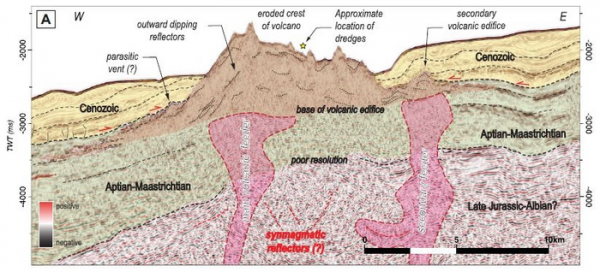The tendency of cities to trap heat — a phenomenon called the “urban heat island,” often referred to as the UHI effect — can lead to dangerous temperatures in the summer months, but new Penn State research suggests that certain urban factors can reduce this effect.
articles
Extinct Offshore Volcano Could Store Gigatons of Carbon Dioxide
A new study published in Geology concludes that an extinct volcano off the shore of Portugal could store as much as 1.2-8.6 gigatons of carbon dioxide, the equivalent of ~24-125 years of the country’s industrial emissions.
Montreal Protocol Is Delaying First Ice-Free Arctic Summer
When scientists discovered a hole over Antarctica in 1985, countries across the globe got together and wrote a treaty designed to protect the ozone layer, which shields the Earth--and us--from harmful levels of ultraviolet radiation.
Study Finds Association Between Long-Term Exposure to Air Pollution and Severe COVID-19
A long history of exposure to air pollution is associated with a higher risk of developing severe disease, admission to hospital or an intensive care unit (ICU) and death by COVID‑19 according to a study led by the Barcelona Institute for Global Health (ISGlobal), a research centre supported by the ”la Caixa” Foundation.
Exploring New Methods for Increasing Safety and Reliability of Autonomous Vehicles
When we think of getting on the road in our cars, our first thoughts may not be that fellow drivers are particularly safe or careful — but human drivers are more reliable than one may expect.
A Break From the Lawn - Can an Iconic Meadow Seed Wider Change?
Dr Cicely Marshall, a researcher at King’s College and the University of Cambridge’s Department of Plant Sciences, led a study to monitor the effects.










